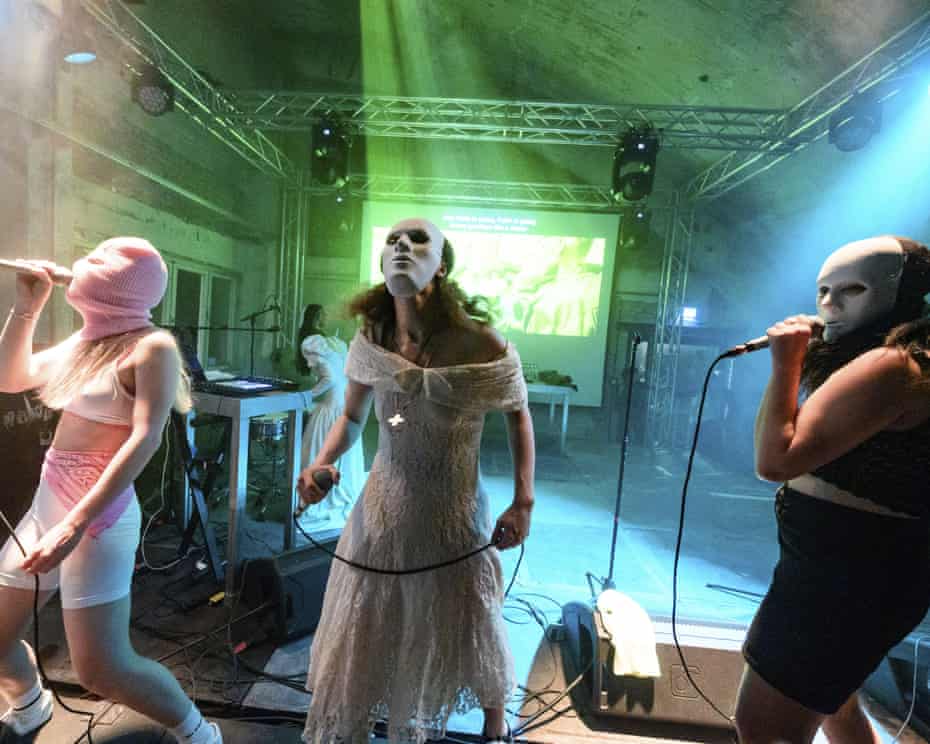Five members of the Russian feminist protest group Pussy Riot have been sentenced in absentia to lengthy prison terms by a Moscow court over performances critical of Russia’s military actions, according to reports from Rolling Stone and the group-affiliated media outlet Mediazona.
The sentences, handed down last week, range from eight to 13 years. The women, Maria Alyokhina, Taso Pletner, Olga Borisova, Diana Burkot and Alina Petrova, were not present in court and are believed to be outside Russia.
The charges relate to two separate incidents. The first was the release in December 2022 of a music video entitled Mama, Don’t Watch TV. Russian authorities alleged that the video spread “false information” about the country’s armed forces, an offence under laws introduced after the invasion of Ukraine in February 2022. The second incident occurred in April 2024 during a performance in Munich, Germany, in which a Pussy Riot member urinated on a portrait of Russian president Vladimir Putin.
Prosecutors argued that both acts were intended to discredit the Russian military and state leadership. The court found the defendants guilty under legislation criminalising the dissemination of what it deems to be false information about the armed forces, as well as actions motivated by political hatred.
The defendants have rejected the charges, describing the trial and sentences as politically motivated. Rolling Stone, citing the group’s legal representatives, reported that the women view the proceedings as part of a broader crackdown on dissent and artistic expression in Russia.
Diana Burkot, who was identified as the composer of the music in Mama, Don’t Watch TV, confirmed the sentences in a post on the social media platform X. In a statement, she said: “I stand by every single word and my anti-war stance is clear. And I continue to believe: Ukraine must win, and Putin must face trial in The Hague.”
Pussy Riot first gained international attention in 2012 when several members were jailed for staging a protest performance in Moscow’s Cathedral of Christ the Saviour, criticising the close ties between the Russian Orthodox Church and the Kremlin. Since then, the group has been known for provocative performances highlighting issues such as political repression, women’s rights and LGBT+ equality.
Following Russia’s full-scale invasion of Ukraine, the group has intensified its criticism of the war, often performing abroad to avoid arrest. Russian authorities have responded by designating members as “foreign agents” and initiating criminal cases against them.
The latest sentences add to a growing list of prosecutions under laws that human rights organisations say are being used to silence opposition to the war. Amnesty International and Human Rights Watch have previously condemned the legislation on “false information” as incompatible with freedom of expression.
It remains unclear whether Russia will seek the extradition of the five women from abroad. Legal experts note that such requests are unlikely to succeed in countries critical of Moscow’s human rights record.
The group has vowed to continue its activism despite the sentences, with supporters describing the verdicts as an attempt to intimidate artists and suppress political dissent.



